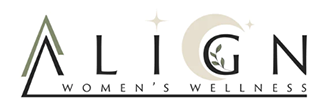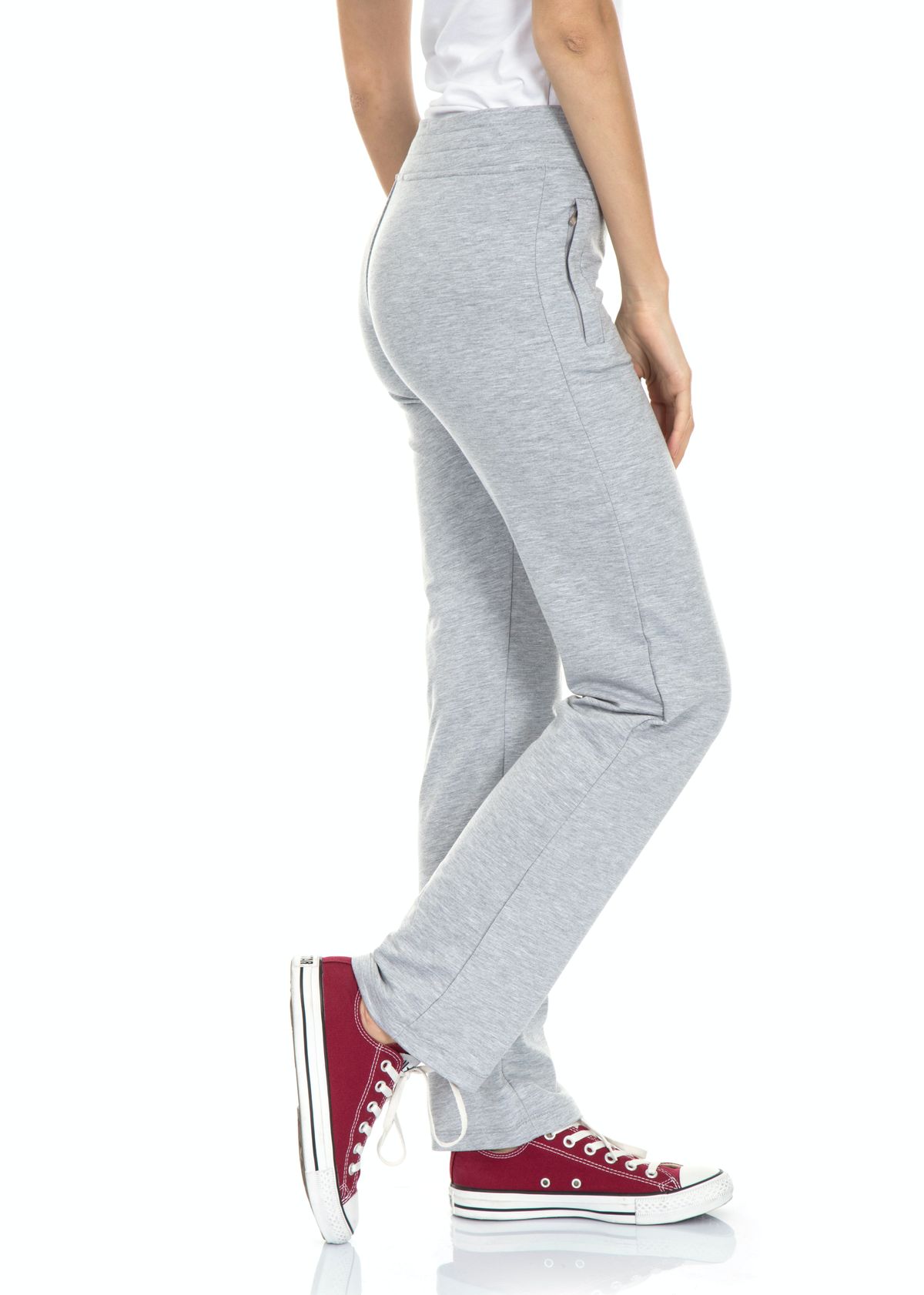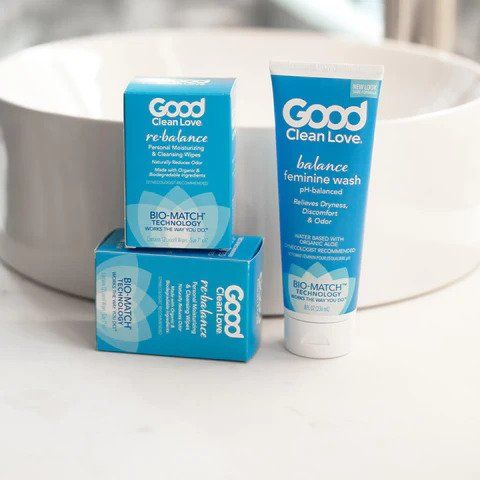Vaginal tissue is among the most sensitive mucous membrane in the body. And with 65% of women feeling insecure about their vaginal odor, it is not surprising there is so much confusion about how to maintain intimate hygiene – while also supporting the health of the vaginal microbiome. Healthy vaginas have their own unique sweet smell, which is not meant to replicate fresh roses or artificial fragrances or perfume. The confusion and shame surrounding normal vaginal odors contribute to the pressure women feel to mask those odors and the prevalence of scented vaginal washes, which are shown to worsen imbalances in vaginal flora.
It may surprise the average consumer, but the vast majority of soaps and intimate washes on the market can be harmful to the vaginal microbiome and contribute to common issues like itching, dryness, and discomfort. Bar soaps have been found to be particularly harmful to vaginal health.
INTIMATE HYGIENE 101
The rise of unrealistic vaginal hygiene standards means that more women may feel they need to buy products to meet these standards, including masking their natural vaginal odor. But, many products on the shelves marketed towards maintaining a “clean”’ vagina actually contain ingredients known to disrupt the vaginal microbiome or cause allergic reactions. Even products marketed towards relieving itch or assisting with disinfection can contain harmful ingredients.
Dr. Christina Enzmann, MD, a Sexual Health and Wellness Institute (SHWI) advisor and gynecologist specializing in vulvovaginal issues, shares her perspective on the dangers posed by many ingredients in bar soap and vaginal washes. “Female sexual intimacy issues have gained their own dynamic following on social media, and women are peer pressured to conform to unrealistic standards of intimate appearance, performance, odor, etc. Consequently, there are many products with unsubstantiated claims advertised and marketed via online platforms. Women end up using products that are causing contact allergies or infections, or are worsening the same condition they were trying to treat and disrupting the vaginal microbiome.”
According to Dr. Enzmann, bar soaps are among the main irritants to avoid using on the vulva: “The soap scum [from bar soap] deposits into vaginal mucosa and disrupts the cell-to-cell adhesion barrier, which strips it of its defense mechanism and makes it vulnerable to yeast infection. Even worse are the very popular soaps that claim to deposit lotion back on your skin – these are some types of mineral fatty acids that are deposited back on your skin after your natural skin oils have been stripped.”
Bar soap usage also increases the pH of the vagina, which can lead to infection and imbalances. Dr. Enzmann states that most of her patients with recurring bacterial vaginosis often use bar soap to cleanse their vaginas. The surfactants in bar soap can cause a disintegration of the vulva skin barrier, which is already extremely thin. Although liquid body washes can also be harmful to the vagina if not catered to the vaginal microbiome, they typically employ milder surfactants and incorporate more emollients. Thus, they can improve skin over time and have less of a harsh effect on the vulva. Ultimately, most bar soaps are very harmful to the vaginal microbiome.
The only washes that should be used to clean the vulva are those that are developed to support the natural vaginal ecosystem. Read more in our full interview with Dr. Enzmann on the impact of bar soaps on vaginal health.
SO, DOES THE VAGINA NEED TO BE WASHED?
The idea of “vaginal wash” is in and of itself a misnomer. When considering hygiene products, it is important to distinguish between the vagina and the vulva. The vagina is the inner muscular canal that extends inward from the vulva. It cleans itself by releasing natural secretions (or discharge) and keeps itself healthy by maintaining its natural pH level. Whereas the vulva – or outer parts of the vagina, including the labia and clitoris –needs a healthy and balancing daily regimen should be cleaned regularly with water and a vaginal body-safe wash.
WHAT DO GYNECOLOGISTS RECOMMEND?
Gynecologists typically recommend soaps that are unscented and designed to support and maintain the pH balance of the vagina. Dr. Enzmann suggests using only small amounts of any soap or wash, rather than completely lathering the vulva with soap while cleansing. As long as you are using a wash developed to support a healthy vaginal pH balance and microbiome, then yes, you can use vaginal wash every day.
IS BAR SOAP “BAD” FOR THE VAGINA?
In short, yes. Bar soap usage also increases the pH of the vulvovaginal area, which can lead to infection and imbalances. Dr. Enzmann states that most of her patients with recurring bacterial vaginosis often use bar soap to cleanse their vaginas. The surfactants in bar soap can cause a disintegration of the vulva skin barrier, which is already extremely thin. Although liquid body washes can also be harmful to the vagina if not catered to the vaginal microbiome, they typically employ milder surfactants and incorporate more emollients. Thus, they can improve skin over time and have less of a harsh effect on the vulva.
Ultimately, most bar soaps are very harmful to the vaginal microbiome. The only washes that should be used to clean the vulva are those that are developed to support the natural vaginal ecosystem.
HOW SHOULD I CLEAN MY VAGINA?
Use a vulva-safe soap once a day with your hand (and not a washcloth) using cool or lukewarm water. This might also be a good time to wash the anus and the perineum, which is between the anus and the vulva. Whenever you’re working in this area, always move front to back, starting with the vulva and moving back toward the anus, so that you don’t accidentally push bacteria from the anus forward into the vagina.
If you are experiencing abnormal vaginal odor, it may signify a pH or bacterial imbalance or an infection, such as bacterial vaginosis or a yeast infection. It is essential to consult your gynecologist if this experience of abnormal odor continues or worsens. Dr. Enzmann recommends the Restore® Moisturizing Vaginal Gel for those prone to vaginal irritation and odor. This gel is pH-balanced to the vaginal environment and contains racemic lactic acid that encourages good bacteria to thrive.
Another customer favorite that helps reduce abnormal odor is Rebalance pH-Balanced Wipes. These wipes are formulated with aloe vera and soothing botanical extracts and helps to clean, refresh and reduce abnormal odor naturally by supporting a healthy vaginal ecosystem.
HOW HYGIENE MAY AFFECT VAGINAL HEALTH CONDITIONS
A variety of vaginal health conditions may cause the vulva to be more sensitive to washes and soaps that disrupt pH balance. Here are just examples of when using a vulva-friendly wash can be particularly important.
BACTERIAL VAGINOSIS (BV)
BV is caused by an overgrowth of anaerobic bacteria in the vagina, which causes an imbalance of bacteria. One of the most common symptoms of BV is burning or itching in the vulva or vagina. This symptom can cause the vulva and vagina to become more sensitive to washes and soaps. Since bacterial vaginosis results from an imbalance in the vaginal microbiome, using a wash with harmful ingredients may further upset this imbalance and cause more discomfort or odor.
MENOPAUSE
During menopause, levels of estrogen naturally go down. As a result of lowering estrogen levels, the walls of the vagina can become thin, dry, and sometimes inflamed. In many people, this can lead to uncomfortable symptoms such as vaginal burning, irritation, pain (especially during sex), bleeding, or discharge. Due to these symptoms, the vagina can become even more sensitive to washes or soaps.
LICHEN SCLEROSUS
This condition creates patchy, white skin that appears thinner than normal on the genital and anal areas. It is fairly uncommon, but postmenopausal women are at a higher risk. Symptoms of lichen sclerosus include redness, itching, discomfort, tearing of the skin, and painful sex. This condition can make the vaginal and anal area sensitive to washes or soaps.
YEAST INFECTION
A vaginal yeast infection is due to an overgrowth of yeast in the vagina, which stems from an imbalance of bacteria. Yeast infections can be caused by a number of things, including uses of scented washes, antibiotics, pregnancy, eating a lot of sugary foods, stress, and more. Yeast infections can make the vagina and vulva more sensitive, as symptoms of yeast infections include vaginal burning, itching, swelling, soreness, and whitish-gray discharge.
If you are experiencing one or more of these health conditions, it is crucial to ensure that you use vaginal-safe washes to cleanse the vagina.
WHAT EXPERTS RECOMMEND: A VULVA-SAFE WASH
Now that we know how crucial it is to use a pH-balanced, body-safe wash to clean the vulva, what products do experts suggest for intimate cleansing? Over 10,000 health care providers, including OB/GYNs, pelvic floor therapists, doulas, oncologists, and more in our medical sampling network, recommend Balance Moisturizing Wash to their patients.
Balance was created to maintain a healthy vaginal microbiome and can be used for everyday washing. It is formulated with organic premium aloe and racemic lactic acid, is pH balanced to the vagina (4.0 pH), and contains no harmful chemicals. Use this daily wash to cleanse while moisturizing and soothing the vulva. Rebalance pH-Balanced Wipes are also a popular option when you’re on the go as they’re made with the same formula as Balance wash.
Written By: Good Clean Love Staff
Feminine Hygiene & Organic Personal Lubricants | Good Clean Love


